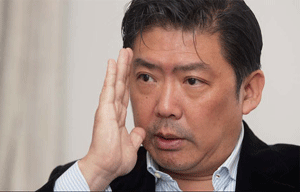Draft establishes patients' rights
Updated: 2011-10-15 08:40
By Zhao Yinan (China Daily)
|
|||||||||
Legislators to consider law to protect those wrongfully deemed mentally ill
BEIJING - A long-awaited draft law and the country's first to protect the rights of mentally ill people and prevent illegal forced hospitalization will be submitted to lawmakers for discussion at the end of this month, a chairpersons' meeting of the top legislature decided on Friday.
Lawmakers will be able to review and discuss the draft of the mental health law during their bimonthly session from Oct 24 to 29, according to a statement issued after the chairpersons' meeting of the National People's Congress (NPC) Standing Committee.
The draft, which has undergone 10 revisions over the past 26 years, tries to protect the rights of the mentally ill and prevent wrongful rehabilitation of healthy people, said Wang Yue, a psychiatry professor at Peking University who took part in the drafting.
Wang said the draft tries to secure the rights of the mentally challenged, including their right to education, work and privacy.
About 100 million Chinese suffer from mental disorders, according to statistics released by the Chinese Center for Disease Control and Prevention in 2009.
Studies have shown that at least 56 million mentally ill people across the country do not have access to proper treatment.
"The population suffering from severe mental disorders, roughly 16 million people, is still on the rise, especially among women, the elderly and the disaster-affected groups," Wang said.
Liu Xiehe, a psychiatrist with the West China Hospital in Sichuan, who initiated the mental health legislation in 1985, told West China Metropolitan News that the draft also stipulates that people who illegally hospitalize mentally ill patients without their or their relatives' consent will face criminal punishment.
"The draft states only the patient has the right to decide whether to receive hospitalized treatment, if he does not pose a danger to himself and the people around him," Wang said, adding that this article is expected to prevent healthy people from being committed.
But forced hospitalization would be possible in the case of people who cannot control their behavior and who possibly threaten the public after they are reviewed by doctors or third-party judicial evaluation agencies.
In a recent case, a former firefighter named Xu Wu, in Central China's Hubei province, claimed his experience was a real-life version of the film One Flew Over the Cuckoo's Nest, arousing wide social discussion on whether a mental patient can be forced to receive residential treatment.
After escaping in April from the ward where he claimed to be illegally hospitalized for four years, the 43-year-old said he had been wrongfully diagnosed by the hospital affiliated with the company he used to work for.
Although Xu claimed he was confined only because he had submitted a petition complaining about low wages, the official investigation team concluded that he needed to be hospitalized because he suffered from a paranoid disorder.
"In such a case, it is necessary to let a neutral party, such as the judicial system, review the decision to send a mentally ill person to a hospital," Wang said, adding it is a pity that the draft failed to do so.
Friday's chairpersons' meeting of the NPC Standing Committee also decided that lawmakers, at the bimonthly legislative session later this month, will review a draft decision submitted by the State Council to upgrade China's anti-terrorism work.









